The first word that comes to mind upon entering Loring Place is “clean.” In the midst of New York City’s clutter and chaos—not to mention the charming old world kitsch of Greenwich Village—the initial effect is jarringly sleek. Ergonomic wood and metal chairs are backed with beautifully fitted, utilitarian, felted chair pads. Tables are adorned with minimalist sprigs of green in tiny glass vases. There are waiters dressed in crisp white shirts and sturdy grey aprons, plenty of pockets to spare. Wood, steel, white, grey—the only real pops of color are a bright blue streak under the smooth cement bar or a zesty orange on the back windows’ frames.
For Chef Dan Kluger, that simplicity was an explicit choice. “Growing up in New York, my parents were into oriental rugs, clocks, books and other antiques. My wife and I are very modern, and I wanted something much simpler than what I grew up with,” he says. “It’s pretty similar to what we have at home.” That personal perspective is fitting, as Loring Place is—in many ways—Kluger’s public home. Opened in December 2016, it’s his first solo venture in the city, although restaurant-goers have long swooned over his vegetable-driven plates.
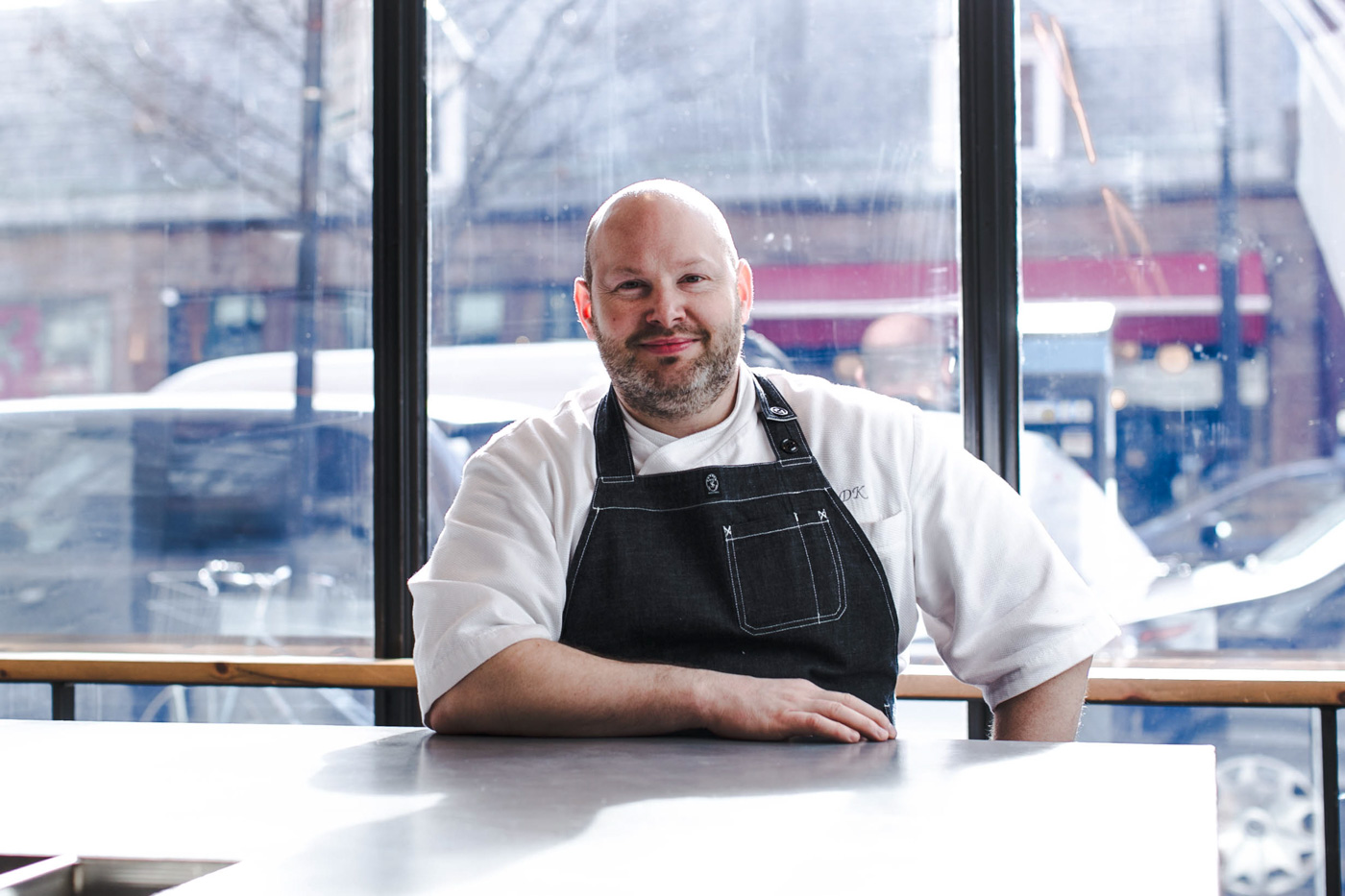
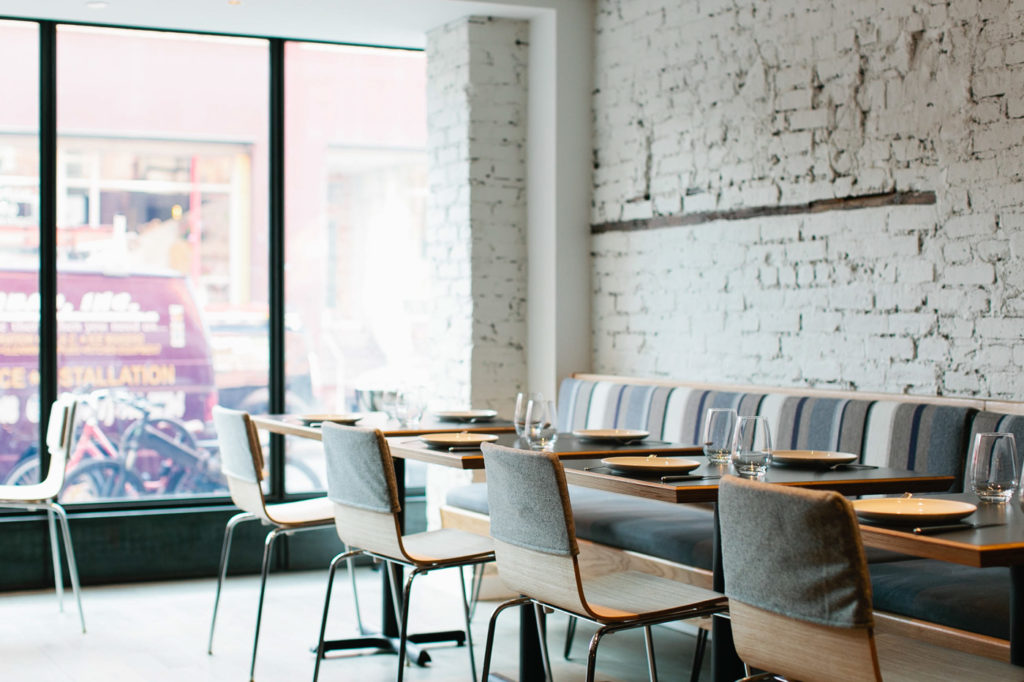
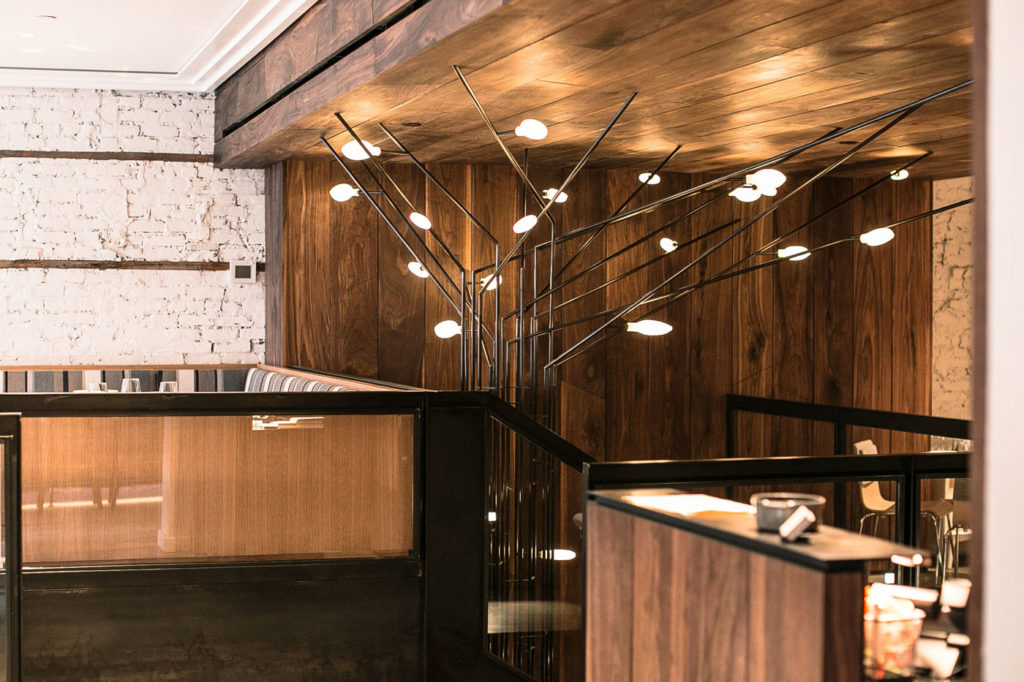
If you don’t know Kluger’s name, you will surely know that of ABC Kitchen, Jean-Georges Vongerichten’s picturesque modern American restaurant near Union Square. A joint venture with Paulette Cole of the beloved ABC Carpet & Home design store, ABC Kitchen opened in 2010 to rave reviews, earning Executive Chef Kluger a James Beard Award for Best New Restaurant, followed by a Food & Wine nod for Best New Chef. Seven years later, the reservation books are still chock-full, and two spin-off restaurants—ABC Cocina and the soon-to-open ABC V—have sprung out of Kitchen’s incredible success.
Despite these many accolades, it’s somewhat unusual that the press knew and celebrated Kluger’s name back in his ABC days, given the long shadow of such a tour de force as Jean-Georges. With more than 30 restaurants across the globe, Jean-Georges is one of the industry’s most prolific restaurateurs, and he has fostered the careers of countless culinary leaders in turn. In Kluger’s case, the introduction came through the greenmarket, where the French chef noted the sheer quantity of ingredients that Kluger was carting uptown.
“Some restaurants buy a couple heads of radishes and call their menu farm-to-table,” Kluger cautions. ”But in my case, I was literally buying two taxi cabs full of produce—three times a week—to cook at this beautiful private club in Midtown. Jean-Georges snuck into the Core Club to see what I was cooking, and that’s when we started discussing the project at ABC.”
Yet long before he entered the ranks of New York’s most respected chefs, Kluger was just a Manhattan-raised kid working toward an undergraduate degree at Syracuse University. “I thought I wanted to do a masters in physical therapy, so I was taking some courses in nutrition to get credits in a related field. I took this food safety class that most people couldn’t stand, and I really liked it,” he says. “Then we got to food science, and all the sudden I went from being a D student to getting As because I found the topic so interesting.”
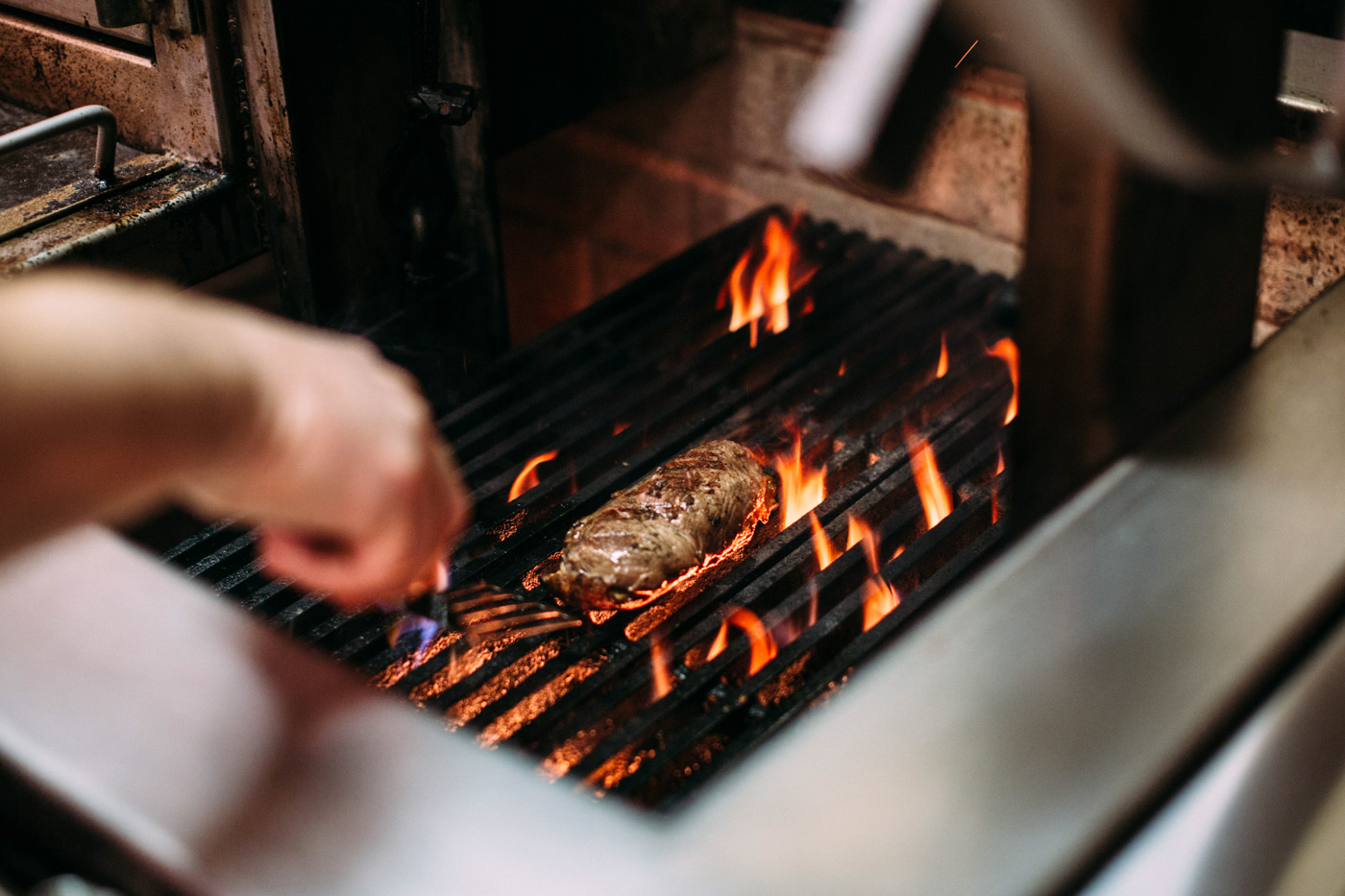
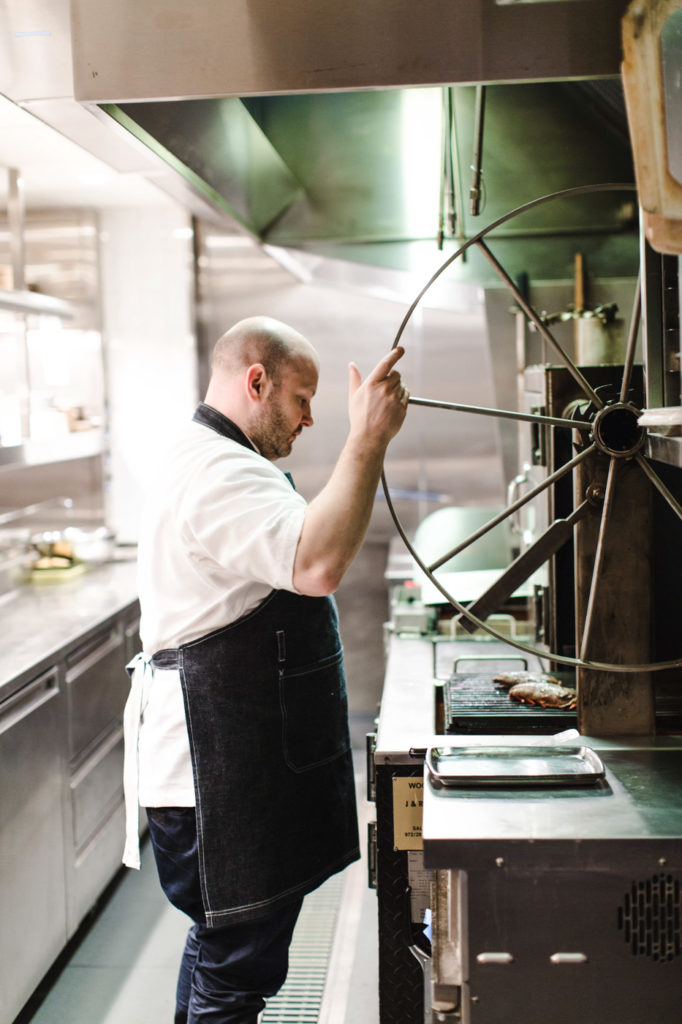
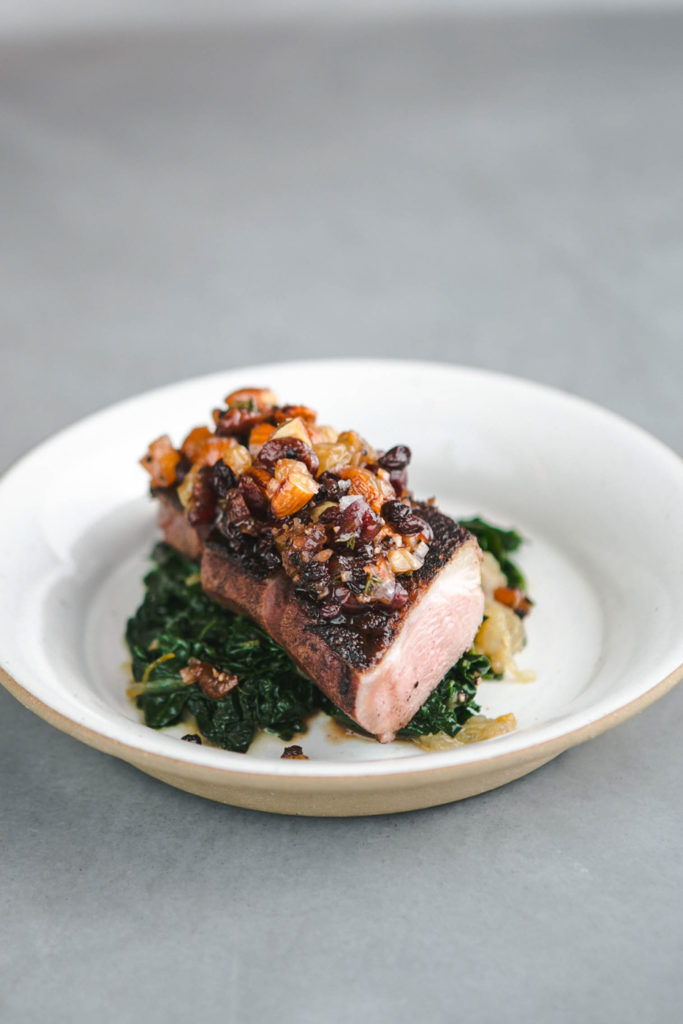
His time at Syracuse would also provide Kluger with a direct introduction to one of the industry’s most beloved personalities, Danny Meyer. As luck would have it, Kluger was taking a basic cooking class where they prepared meals for guest speakers visiting the college—entrepreneurs from Tommy Hilfiger to Charlie Palmer. When Meyer came to visit, Kluger was selected to pull up a seat to the table. After giving the restaurateur a tour of the campus, he walked away with an internship offer at Union Square Hospitality Group.
“The summer before my senior year, I worked front-of-house, back-of-house, the phones—anything to learn the business. And I realized that owning a restaurant was something I might like to do,” Kluger says. “After graduation, I went back to Union Square Café to work front-of-house, but I was always hanging around in the kitchen trying to figure out what the chefs were doing. Michael Romano offered me a job as a prep cook—starting from the very bottom. I was literally slicing garbage bins full of potatoes for chips every night.” He moved up quickly, and was soon placed at Tabla.
If Meyer instilled in Kluger a desire to become a restaurateur, it was Floyd Cardoz—then Executive Chef at Tabla and currently of Paowalla—who began to shape Kluger’s palate. “We used to say with Floyd, it was always ginger, chilies and shallots on everything,” Kluger laughs. “Those flavors have stayed with me throughout my career. I brought them to the Core Club and then to ABC Kitchen. They’re still with me at Loring Place.”
It’s also worth noting that Kluger’s move from the private Core Club to ABC Kitchen was somewhat unusual for the industry. Serial chef-entrepreneurs like Jean-Georges, Mario Batali and Daniel Boulud tend to recruit from the inside, choosing executive chefs that have been carefully groomed in their own kitchens. Hiring Kluger meant bringing in someone with his own ideas and vision—a point that is instrumental to understanding his evolution as a chef.

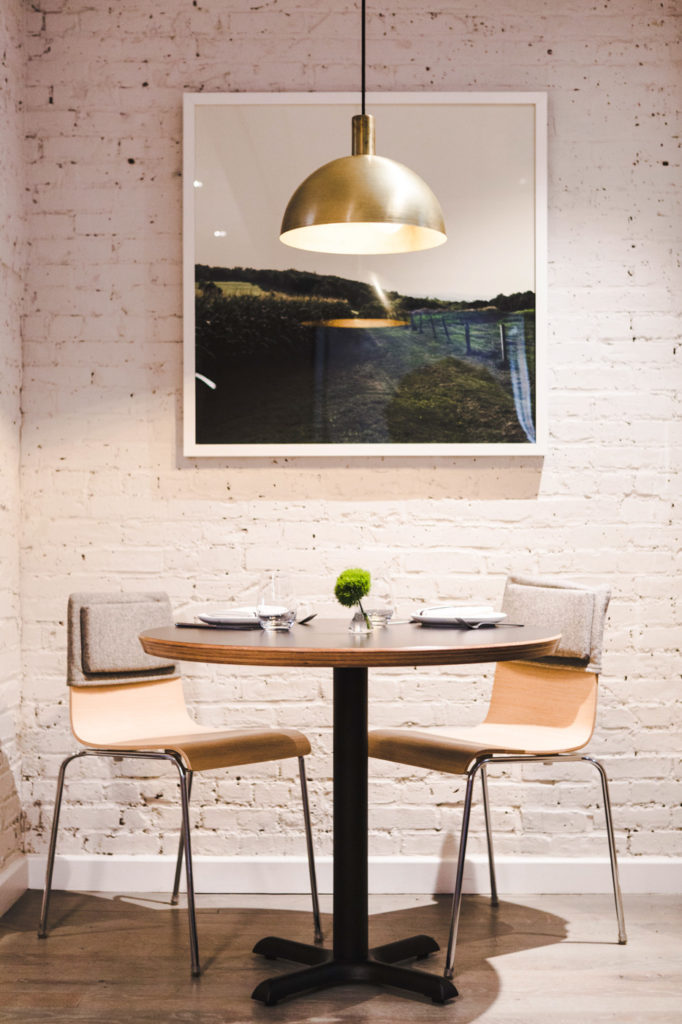

“It was an honor to come into Jean-Georges’ group without having worked for him before. Even moreso because the opportunity came with the respect and understanding that I was able to bring my past experience and my individual perspective to the table,” Kluger notes. “[Jean-Georges] was a great business mentor, and his corporate chef, Greg Brainin, was amazing to work with in the kitchen. But the dishes at ABC Kitchen weren’t just something I was trying on for size. They were a representation—almost to a fault—of my personal style.”
In opening Loring Place, Kluger thus had one of two paths to choose from. He could force a break with the legacy of ABC, attempting to create a style of cooking that would be inarguably new. Or he could stick to his gut and build on 15 years of cooking in New York City restaurants. In the end, Kluger says, “I’m not trying to reinvent anything here. This is my chance to reminisce.”
At Loring Place, it’s clear Kluger is pulling from an incredibly broad range of references—from Meyer’s world-renowned hospitality to Cardoz’s spices, and even highlights from his New York City childhood. Yet in explaining his culinary background, Kluger is quick to note, “Jean-Georges and Floyd, they both have very specific food memories from childhood. I didn’t grow up tugging at my parents’ apron strings, and I certainly wasn’t lucky enough to pick fresh coconuts out of a tree on my great-grandmother’s plantation. My first culinary memories are New York City restaurants.The bakery my parents’ friends owned uptown—that inspired my cookie plate. The wheat spaghetti we serve with spinach and chili paste—that’s my update on the first dish I ever learned to cook at Union Square Café.”
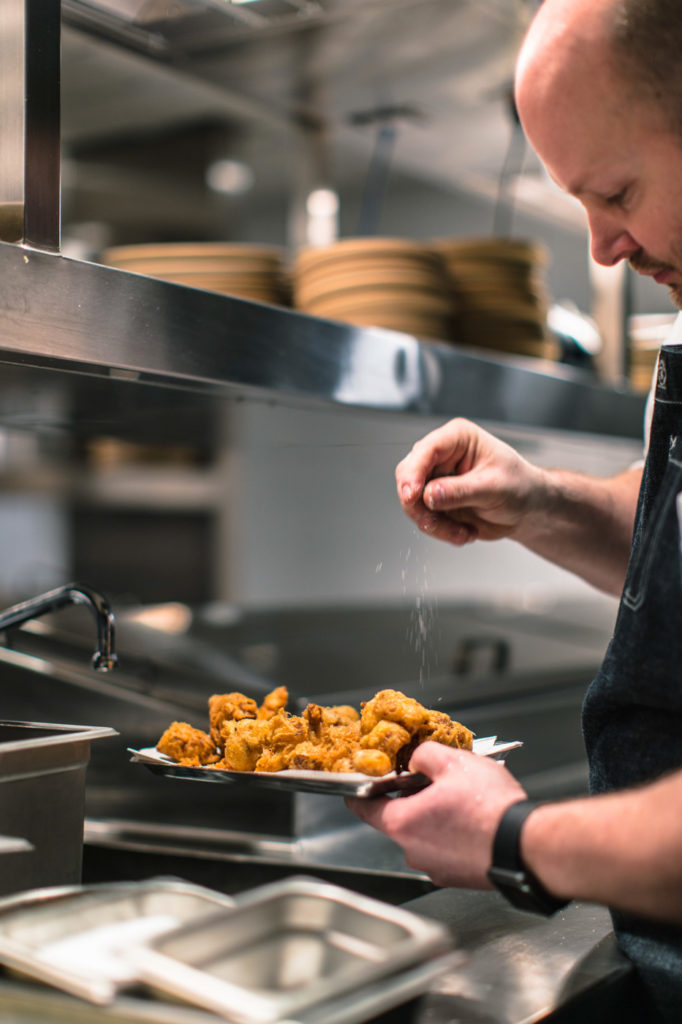
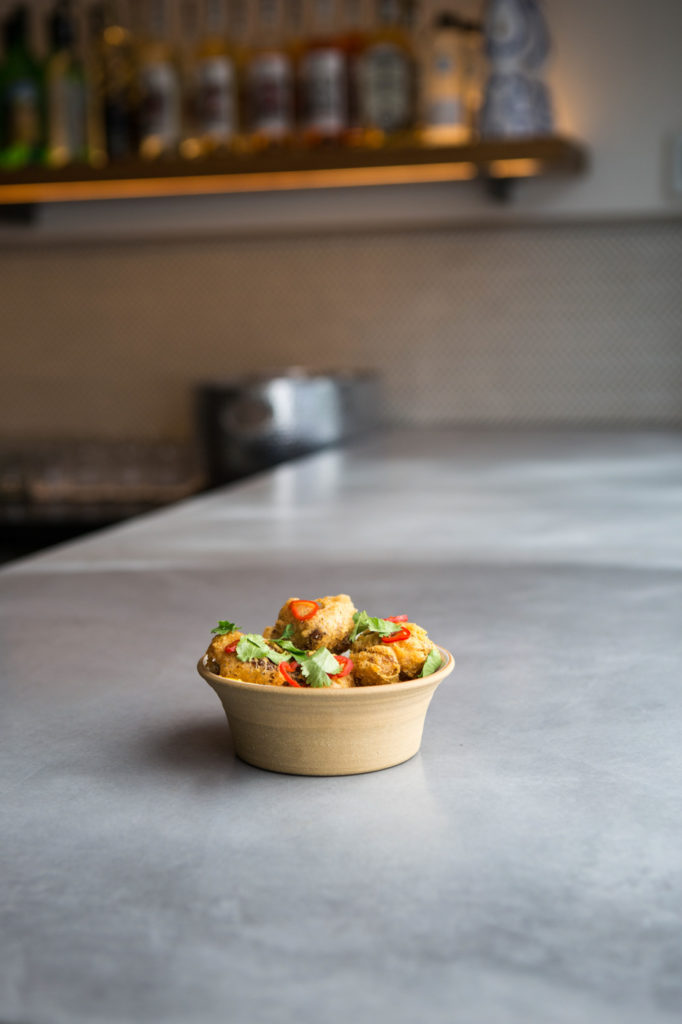
Of course, there are clear differences between ABC and Loring Place. The décor, for starters. Here, there are no mix-and-match plates, no plethora of artfully placed chandeliers and lighting fixtures. One of the only design-for-design’s-sake elements is a steel and blown glass tree growing out of the staircase. In the dim lit evening hours, it’s understated enough to pass by without a double take. Like a good film, the space’s subtle elements reveal themselves through repeated visits.
Dig deeper still, and you’ll start to get a sense of Kluger’s core values and methodical process. The long tables in the private dining room are crafted from wooden beams salvaged from the construction process. The built-in vestibule—a nod to Meyer’s emphasis on guest experience—is a true luxury in a city built for maximizing footprints. The sizable kitchen, a luxury for any urban chef, includes a wood-fired oven and elbow room to spare.
“At the end of the day, I wanted everything to have a purpose,” Kluger emphasizes. “I look at the space like a perfect piece of produce; I wanted it to be its own ingredient. If you have a beautiful vegetable, you just cut it and put oil on it. That’s exactly the same thing we did to the walnut wood that hides our air conditioning ductwork. It doesn’t need more.”
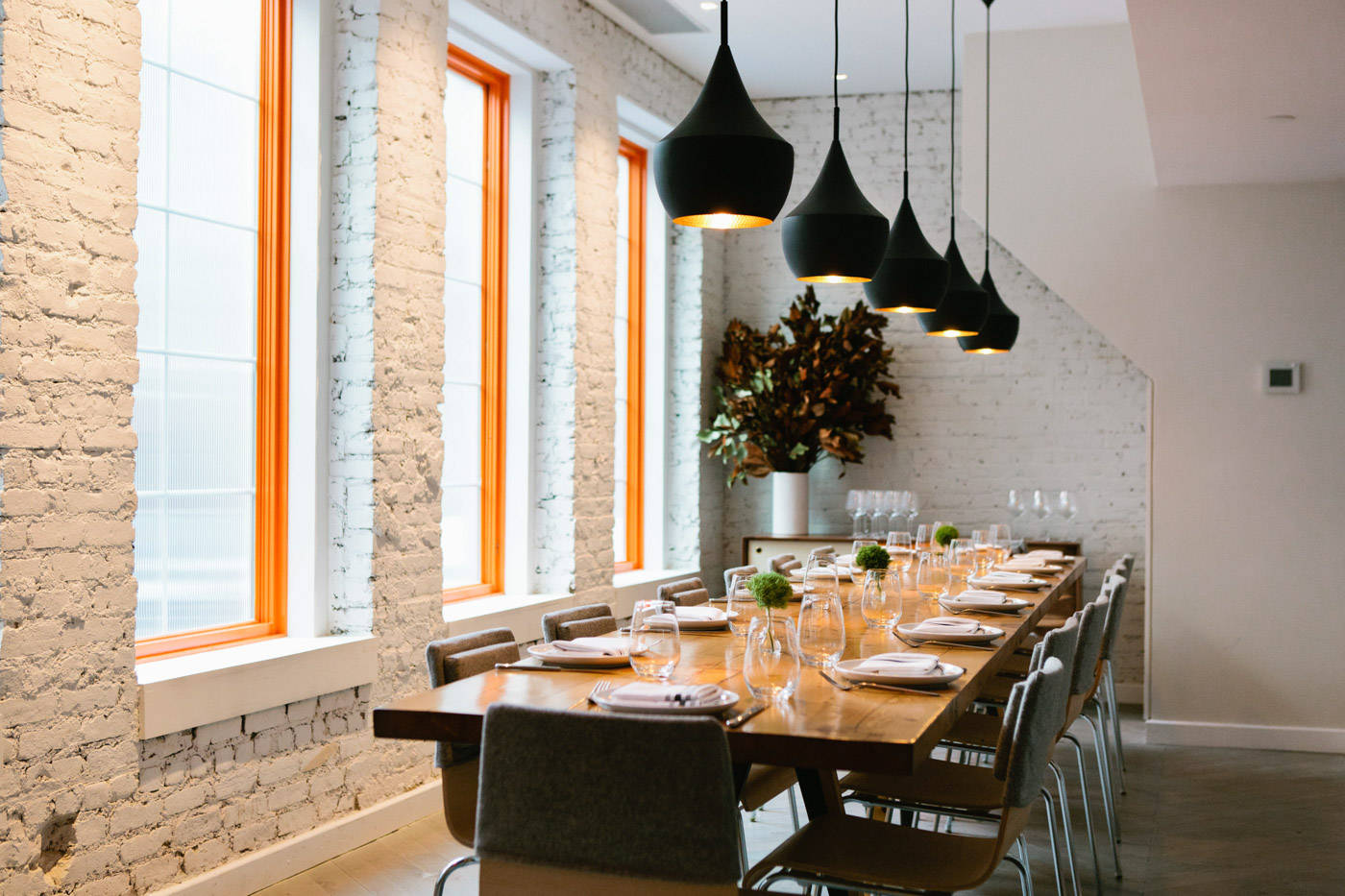
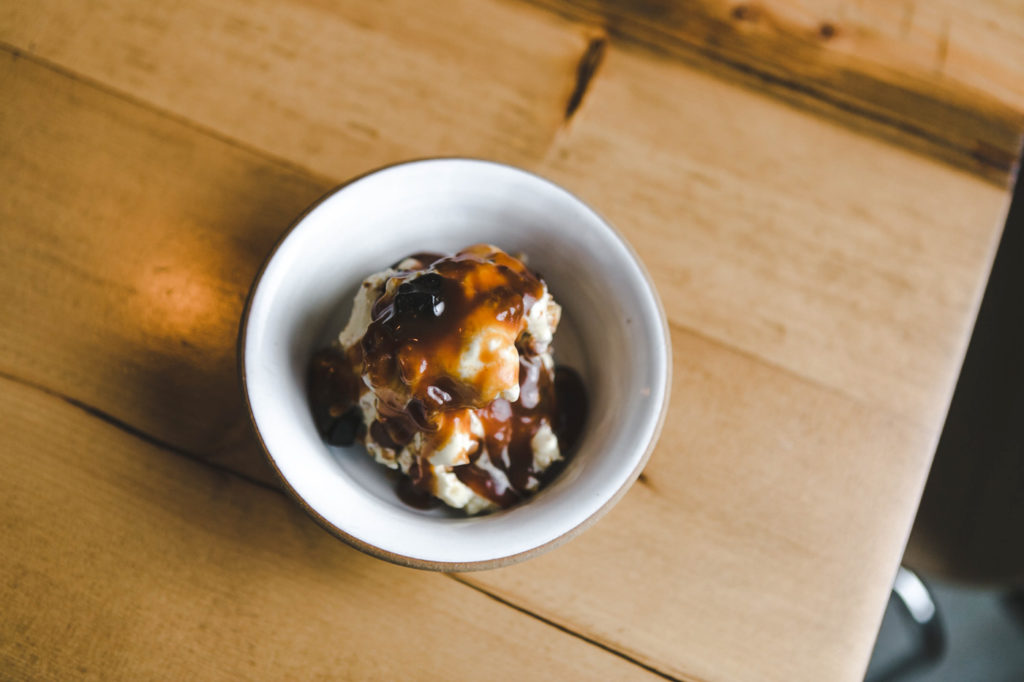
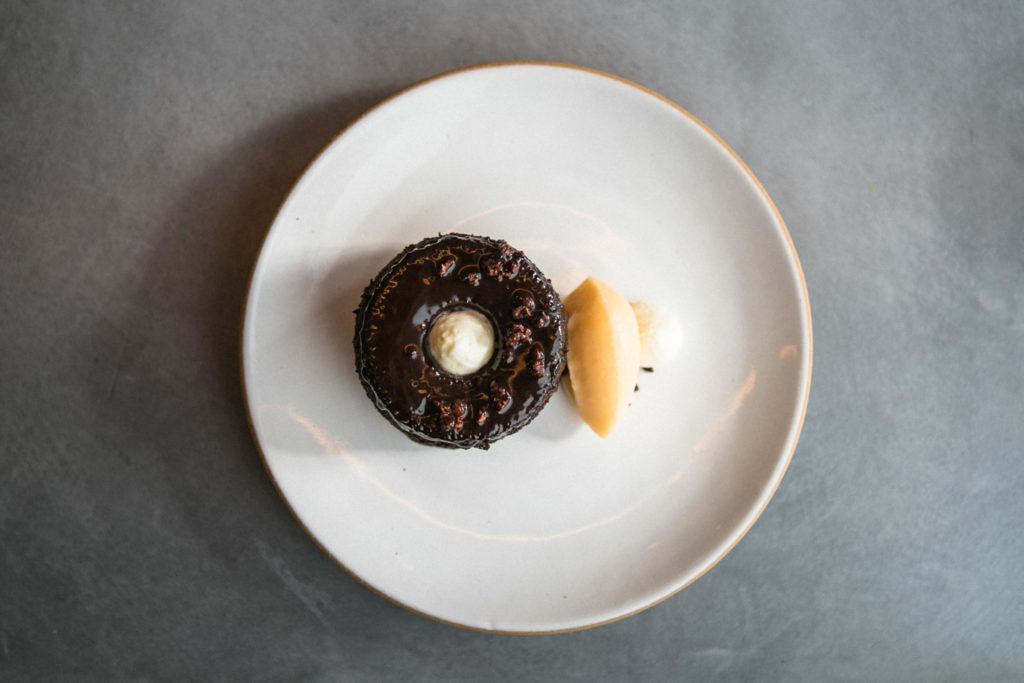
Yet more is what anyone will want of Kluger’s healthy-yet-comforting fare. His hummus and radishes may sound humble, but the addictive, savory spread with housemade crackers is the kind of dish that becomes an instant classic. The leeks and pears plays with earthy, sweet and umami flavors through the addition of walnuts, yogurt and sherry vinaigrette. On the brighter side, his tuna tartare adds acidity and heat to a run-of-the-mill classic through pickled sunchokes, tarragon and ginger.
In the end, what’s most charming about the food—and the space—is that everything has its place. After years of tallying what he didn’t like about other restaurants, Kluger is a man who simply knows what he wants. No melodrama; no pointless flourishes. In a city where so many people strive and struggle to be the center of attention, it’s refreshing to meet a chef so utterly himself.





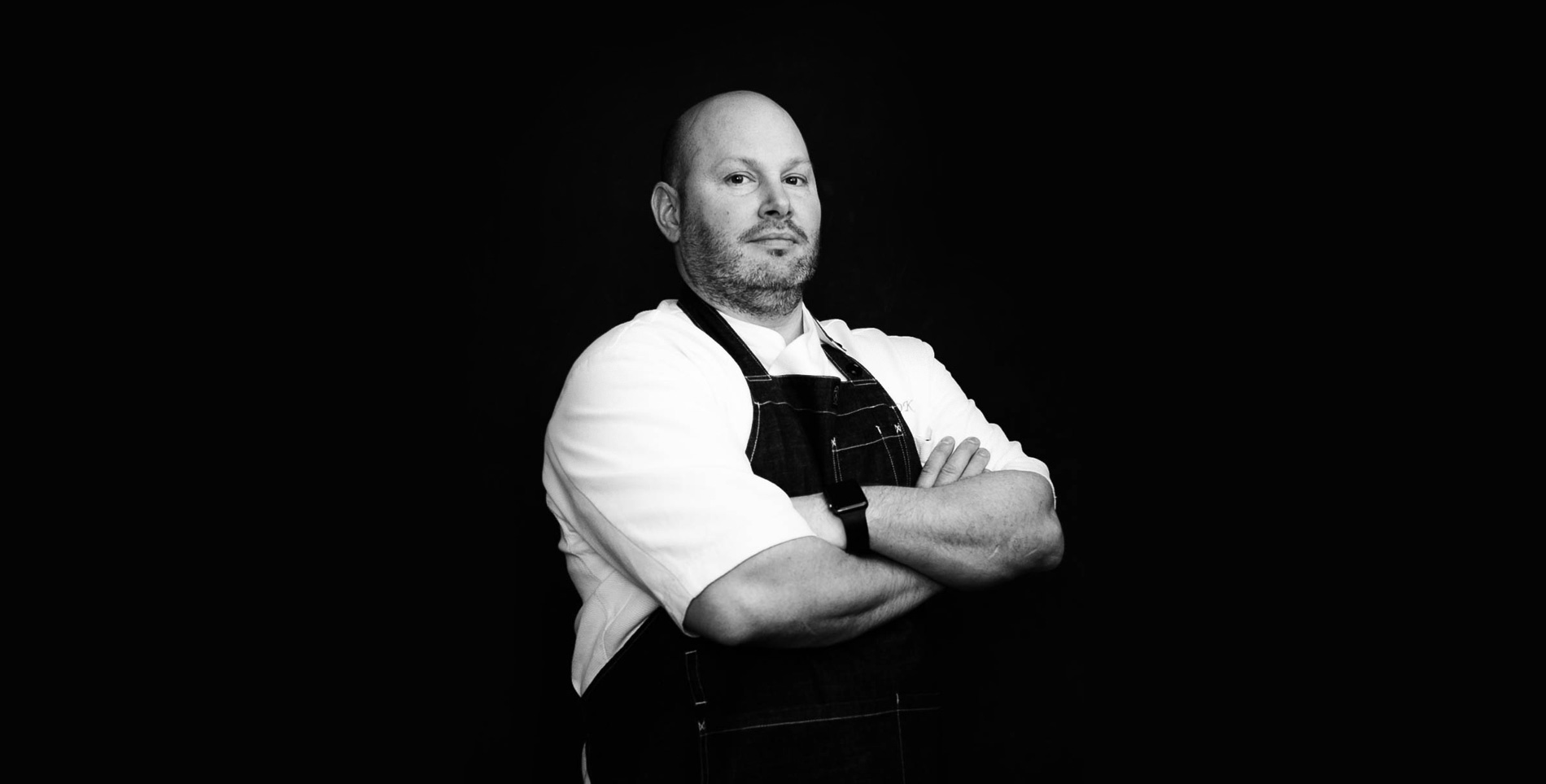

Our comments section is for members only.
Join today to gain exclusive access.